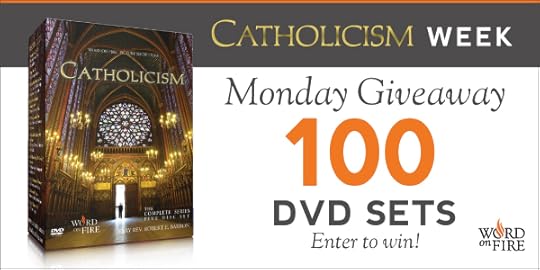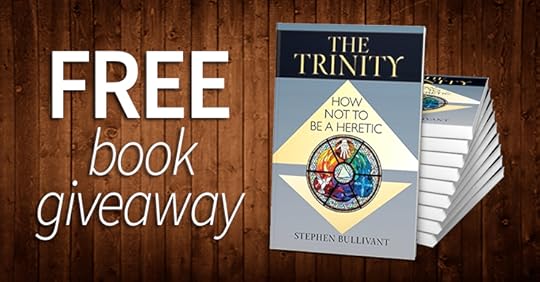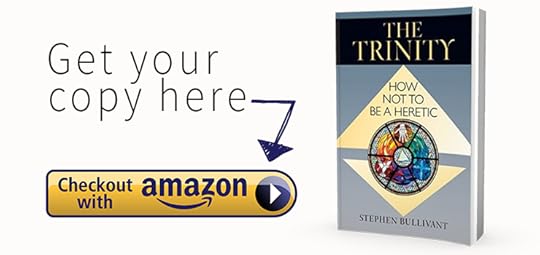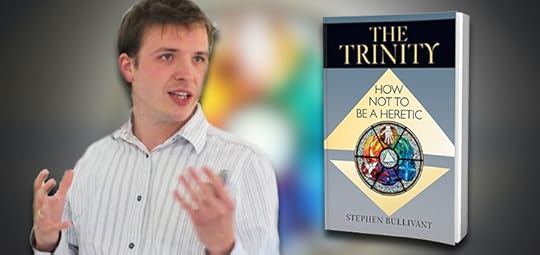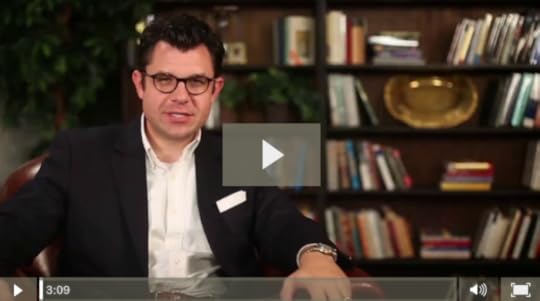Brandon Vogt's Blog, page 16
May 7, 2015
Learning from a Saint Who Served People on the Periphery
Today we continue our regular series called “Learning from the Saints.” Our guide is expert Bert Ghezzi, a dear friend of mine and the author of numerous books including Voices of the Saints, Saints at Heart, and Discover Christ: Developing a Personal Relationship with Jesus.
His more recent books are The Power of Daily Mass and The Heart of Catholicism. You can learn more about Bert and his work at BertGhezzi.com.
Today, Bert profiles St. Damien of Molokai, the patron of people with Hansen’s Disease (commonly known as leprosy.)
“I make myself a leper with the lepers to gain all for Christ.”
— St. Damien de Veuster
In 1873, Belgian Father Damien de Veuster volunteered to serve the lepers at Molokai. Shortly after the young missionary arrived in Hawaii eight years before, a leprosy epidemic struck the islands, and victims were herded into isolation. Even though he had a premonition that he would die a leper, he under took his assignment with excitement. “I—I want to go there!” he had told his bishop. “I know many of these unfortunate souls and I ask only to share their lot and their prison.”
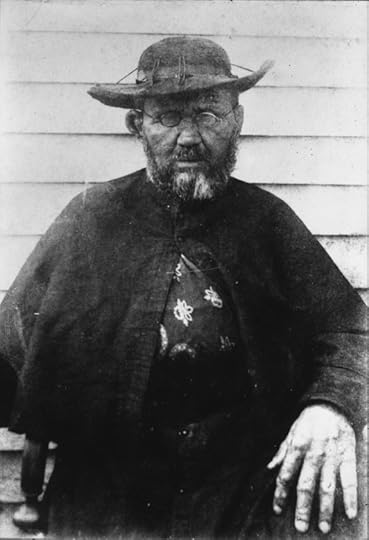 And Damien found that Molokai was indeed a prison—of degradation, suffering and death. Although engulfed by hopelessness, he refused to submit to it. Immediately, Damien set out to restore the dignity of the lepers. He treated them not as victims, but as ordinary human beings. He organized them into work groups that constructed roads, cottages and clinics. He established a cemetery and built coffins for them, improving their lives by making their deaths respectable. For the sports-loving Hawaiians he organized foot races, even though some competitors had lost their feet. He cheered the island by forming a choir and a band. Two organists who had ten fingers between them played at funeral masses.
And Damien found that Molokai was indeed a prison—of degradation, suffering and death. Although engulfed by hopelessness, he refused to submit to it. Immediately, Damien set out to restore the dignity of the lepers. He treated them not as victims, but as ordinary human beings. He organized them into work groups that constructed roads, cottages and clinics. He established a cemetery and built coffins for them, improving their lives by making their deaths respectable. For the sports-loving Hawaiians he organized foot races, even though some competitors had lost their feet. He cheered the island by forming a choir and a band. Two organists who had ten fingers between them played at funeral masses.
Damien took no precautions in personally caring for his people. Though often sickened by the overwhelming stench of their rotting flesh, daily he touched, hugged and bathed them. “I have seen him,” said a visitor, “dress the most loathsome sores as if he were arranging flowers.”
Father Damien never rested. When he was not tending to the needs of his beloved lepers, he was pressuring the government for more money and medical resources for the colony. He finally contracted the dread disease and died at Molokai on April 15, 1889.
The saint was always gentle with others, but like *St. Peter Claver, hard on himself. We admire his self-abnegation, but recoil from the thought of doing what he did. We don’t easily understand such selflessness, but perhaps Damien’s “personal rule,” quoted below, explains something of the force that drove him:
“The memory of your past infidelities must move you at each present moment to acts of humility and contrition, with the renewing of firm vows for the future. Be severe toward yourself, indulgent toward others. Have a scrupulous exactitude for everything regarding God, that is, in prayer, meditation, celebration of mass and the sacraments.
“Unite you heart with God. And especially, in the midst of temptation, protest ceaselessly that you die instantly rather than consent to the least venial sin. May passion lead you continually to whisper these words: ‘I wish to be dissolved and to be with Christ.’ To stave off consent to sin, remember the invisible judgment of God, who watches and knows all the actions of your free will.
“Be good. Be vigilant. Remember always your three vows by which you are dead to the things of the world. All that you have is only for you to use, not your personal property. Death to the pleasures of the flesh: purity makes you like an angel. Impurity makes a devil out of a priest. No sensuality, no looking for ease. Death to all the caprices of your own will. As with the corpse, let your superiors do what they think best with you.
“Remember always the immutability of God, and imitate it by a patience in the face of all tests. Remember always that God is eternal. Work courageously in order one day to be united with him forever.”
(Image Credit: Wikipedia)
Read more from Bert at his website www.BertGhezzi.com, or check out his many books on Amazon.
The post Learning from a Saint Who Served People on the Periphery appeared first on Brandon Vogt.





April 28, 2015
Arriving at Amen: Seven Catholic Prayers That Even I Can Offer [Book]




Arriving at Amen: Seven Catholic Prayers That Even I Can Offer by Leah Libresco (Ave Maria Press, 2015)


Atheist convert Leah Libresco is well-known for her sharp mind, dogged curiosity, and fresh perspective on faith. Arriving at Amen puts those gifts on full display. Her reflections on prayer and the spiritual journey are brilliant, unique, and utterly refreshing. With this book, Leah hasn’t just arrived at Amen; she’s arrived as one of the premier young Catholic writers today.
The post Arriving at Amen: Seven Catholic Prayers That Even I Can Offer [Book] appeared first on Brandon Vogt.





April 20, 2015
Largest Giveaway in Catholic Internet History!
Fr. Barron’s epic CATHOLICISM film series debuted in the fall of 2011. Since then, it’s aired on PBS, EWTN, and has been seen by millions around the world. It’s now the most-watched Catholic documentary in history and the accompanying study program has become an essential resource for parishes and schools.
To celebrate the film’s evangelical impact, this week Word on Fire is giving away 500 DVDs, books, and study guides at CatholicismWeek.com!
Each day, check CatholicismWeek.com for new giveaways, announcements, and special video clips.
New Giveaway Each Day!
Be sure to check CatholicismWeek.com each day this week o enter a new giveaway!
Monday (April 20) - 100 copies of CATHOLICISM DVD series
Tuesday (April 21) - Stay tuned!
Wednesday (April 22) – Stay tuned!
Thursday (April 23) – Stay tuned!
Friday (April 24) - Stay tuned!
The post Largest Giveaway in Catholic Internet History! appeared first on Brandon Vogt.





April 17, 2015
“The Trinity” Book Giveaway!
“Find out how much God has given you and from it take what you need; the remainder is needed by others.” – St. Augustine
Since I’ve built up a large collection of extra books and resources, every week I give some away absolutely free, no strings attached. Each giveaway lasts seven days with a new one beginning every Friday. You can enter any time during the week. Check out my past giveaways here.
Thanks to Paulist Press, today I’m giving away FIVE copies of Stephen Bullivant’s new book, The Trinity: How Not to Be a Heretic.
(NOTE: If you missed my interview with Stephen earlier this week, check it out here.)
The Trinity: How Not to Be a Heretic
by Stephen Bullivant
Paulist Press, 140 pages, paperback
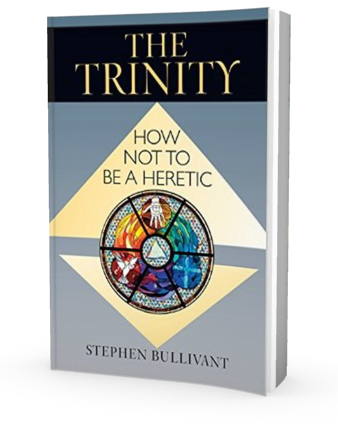 The Trinity is Christianity’s most basic description of who God actually is and who he needs to be in order to save us. It is at the very heart of what Christians believe, and very little else in Christianity makes sense without it. Despite this, a great many Christians, including significant numbers of teachers, catechists, and preachers, do not feel confident in talking about it. It is not that they don’t believe in the Trinity, because they certainly do. But they are not altogether sure that what they think they believe about it is what they are supposed to, and they fear both revealing their ignorance, and leading others astray.
The Trinity is Christianity’s most basic description of who God actually is and who he needs to be in order to save us. It is at the very heart of what Christians believe, and very little else in Christianity makes sense without it. Despite this, a great many Christians, including significant numbers of teachers, catechists, and preachers, do not feel confident in talking about it. It is not that they don’t believe in the Trinity, because they certainly do. But they are not altogether sure that what they think they believe about it is what they are supposed to, and they fear both revealing their ignorance, and leading others astray.
The central idea of this book is that, contrary to popular assumption, the Trinity is a very simple doctrine. It consists of just three short, deeply scriptural convictions: i) There is only one God; ii) Father, Son, and Holy Spirit are all God; and iii) Father, Son, and Holy Spirit are not the same. The Trinity: How Not to Be a Heretic explains how the earliest Christians came to be convinced by each statement, why they matter, and how slowly, over a period of several centuries it found a way of saying all three at once. Its sole purpose is to help Christians of all kinds better understand the Trinity so that they can then help others Christians, non-Christians, and maybe even some not-yet-Christians better understand it too.
I’m using Rafflecopter to help with the giveaway, which is cool because it allows you multiple entries for commenting, posting on Facebook, sharing on Twitter, etc. Click below to enter:
(If you’re reading this through email or RSS and don’t see the giveaway widget, click here.)
By entering this giveaway you agree to occasionally receive email updates from me—no spam, just updates about free books, cool links, and exciting news.
The winner(s) will be randomly selected next Friday and the books will be sent out, free of charge, shortly thereafter.
In the future I’ll be giving away more books and resources, sometimes multiple items per giveaway! So subscribe via feed reader or email to ensure you never miss your chance to win.
(Since I’m covering the shipping costs, only residents within the continental United States are eligible to win.)
The post “The Trinity” Book Giveaway! appeared first on Brandon Vogt.





April 14, 2015
How NOT to Be a Heretic About the Trinity: An Interview with Dr. Stephen Bullivant
I first met Dr. Stephen Bullivant a couple years back and we hit it off immediately. He’s über-smart (he earned his doctorate in theology from Oxford) and has a delicious sense of humor. You can’t help but like him.
Stephen converted to Catholicism in 2008 (same year as me) and has since developed an impressively wide mastery of topics such as atheism, secularism, the new evangelization, and Catholic social teaching.
He has authored several books, including Faith and Unbelief (Paulist Press, 2014), The Salvation of Atheists and Catholic Dogmatic Theology (Oxford University Press, 2012), and The Oxford Handbook of Atheism (Oxford University Press, 2013), which he co-edited with philosopher Michael Ruse.
His newest book is titled The Trinity: How Not to Be a Heretic (Paulist Press, 2015) and that’s what I’m interviewing him about today.
BRANDON VOGT: In theological circles, the Trinity is jokingly considered the untouchable subject. Many pastors avoid preaching on it and most Catholics in the pew consider it an impenetrable mystery. However, you decided to write a whole book on it! What inspired you to tackle this difficult topic?
STEPHEN BULLIVANT: First off, Brandon, thanks very much for welcoming onto these hallowed pages; it’s an honour to be here.
As to your question, to be honest I think you’ve just answered it yourself! “Trinity” is Christianity’s most basic description of who God is, who he has revealed himself to be, and who he needs to be in order to save us. St. Augustine put it best when he used the phrase (as he did quite often) “the Trinity, who is God.” So that means all Christian theology is (or ought to be!) trinitarian theology, all Christian prayer is (or ought to be!) trinitarian prayer, and so on.
All Christians should, therefore, feel confident in talking about it; at the very least, they should feel secure that they know what the word actually means. But, as you rightly point out, they don’t. And that’s exactly why I’ve written the book.
BRANDON VOGT: The Trinity is often deemed a “mystery” of faith. What does this mean? Can we know anything about God’s Trinitarian nature or is it completely unintelligible?
 STEPHEN BULLIVANT: As St. Thomas Aquinas says “God is above whatsoever we may say or think of Him.” All our finite, creaturely words, thoughts, and ideas fall short of the infinite Creator. We’re never going to be able to plumb the full depths of who God is, or exhaust the full mysteries of “the Most High” (Psalm 91:1) – at least, not this side of heaven. “For now we see in a mirror, dimly…” (1 Corinthians 13:12).
STEPHEN BULLIVANT: As St. Thomas Aquinas says “God is above whatsoever we may say or think of Him.” All our finite, creaturely words, thoughts, and ideas fall short of the infinite Creator. We’re never going to be able to plumb the full depths of who God is, or exhaust the full mysteries of “the Most High” (Psalm 91:1) – at least, not this side of heaven. “For now we see in a mirror, dimly…” (1 Corinthians 13:12).
Yet that doesn’t at all mean that we can’t know or say anything about God. Cardinal Ratzinger once wrote that ‘we cannot speak rightly about God unless God himself tells us who he is.’ But that’s exactly what Christians are convinced God has done: most especially in person, as Jesus of Nazareth. The fact that the second person of the Trinity became a “man among men” (St Irenaeus’ phrase), and used ordinary human language to tell us about himself, the Father, and Holy Spirit, is the main reason we can be sure that God’s nature really is trinitarian.
The Church’s whole doctrine of the Holy Trinity—and all the seemingly arcane, theological discussions and disputes surrounding it—is basically an attempt to be faithful to God’s self-revelation.
BRANDON VOGT: Throughout the book, you list three key facts that sum up the orthodox view on the Trinity. What are they and why is each important?
STEPHEN BULLIVANT: The book’s opening sentence is “This is a simple book about an even simpler subject: the doctrine of the Holy Trinity”—and I absolutely mean that. The word Trinity is simply a shorthand way of affirming three easy-to-understand, deeply scriptural statements:
1. There is only one God.
2. The Father, the Son, and the Holy Spirit is each God.
3. The Father, the Son, and the Holy Spirit are not the same.
And that’s it. Each is important, precisely because our God “who tells us who he is” had communicated each of them to humanity. The early Church was so convinced of this, that even though it took them several centuries to find a more-or-less satisfactory way of “saying all three things at once,” they steadfastly refused to downplay or deny any of them.
BRANDON VOGT: The tongue-in-cheek subtitle of your book is “How Not to Be a Heretic.” What are some of the most common heretical views concerning the Trinity?
STEPHEN BULLIVANT: I think one of the most useful things about thinking about the doctrine of the Trinity in terms of those three, simple sentences—what I call in the book the “trinitarian trilemma”—is that the often very arcane and convoluted-seeming controversies of the first few centuries become very easy to understand (and hence avoid!).
There are three main trinitarian heresies, and each amounts to an attempt to deny one of the above statements, while upholding the other two. Modalism, for example, denies the third statement. It attempts to explain away the threeness of the Trinity by saying that “Father,” “Son,” and “Holy Spirit” are just different names or roles that the one God assumes—just like one actor playing three different characters. (In the same way: Borat, Brüno, and Ali G might seem different, but they’re really all just Sacha Baron Cohen in different clothes and putting on different voices.)
Arianism, meanwhille, denies that Father, Son, and Holy Spirit is each truly God (i.e., it denies our second statement). For Arius, the Son was a created being, like a kind of super-angel, and not therefore ‘true God from true God’ (as the Nicene Creed puts it).
Finally, tritheism denies that there’s only one God (statement one): Father, Son, and Holy Spirit are separate gods, a kind of celestial Three Amigos.
Obviously, there’s a lot more that can be said about each of them in terms of both history and ideas (the book devotes a chapter to each one). But that gives you the basic gist.
BRANDON VOGT: The book includes a helpful Afterword on “How to Be an Ecumenist,” which suggests the Trinity is the “preeminent source of doctrinal common ground” between Catholics and other Christians (Protestants, Orthodox, etc.) What role does the Trinity play in the pursuit of Christian unity?
STEPHEN BULLIVANT: That’s a great question. Pretty much every mainstream Christian tradition (and a vast number of the ‘minorstream’ ones too!) affirms the consensus understanding of the Trinity that got worked out in the Church’s first three or four centuries . And that’s because they all share a common history in that period: all the significant, lasting schisms in Church history happened afterwards.
It’s essential to remember, therefore, that “that they all may be one” (John 17:21) isn’t just some hoped-for ecumenical future: we really were all one during the the Church’s formative centuries. Whatever differences have separated us since, and whatever the reasons why, the very fact it even makes sense to be praying for Christian re-unity ought to encourage us. And one of the main reasons it does make sense is because we all share the same basic understanding of “the Trinity, who is God.”
The post How NOT to Be a Heretic About the Trinity: An Interview with Dr. Stephen Bullivant appeared first on Brandon Vogt.





April 10, 2015
“The Drama of Salvation” Book Giveaway!
“Find out how much God has given you and from it take what you need; the remainder is needed by others.” – St. Augustine
Since I’ve built up a large collection of extra books and resources, every week I give some away absolutely free, no strings attached. Each giveaway lasts seven days with a new one beginning every Friday. You can enter any time during the week. Check out my past giveaways here.
Thanks to Catholic Answers, today I’m giving away FIVE copies of Jimmy Akin’s excellent new book, The Drama of Salvation.
(NOTE: If you don’t win the giveaway, you can still save 30% on the book at Catholic.com using the promo code DRAMA at checkout.)
The Drama of Salvation: How God Rescues You From Your Sins and Delivers You to Eternal Life
by Jimmy Akin
Catholic Answers Press, 350 pages, hardcover
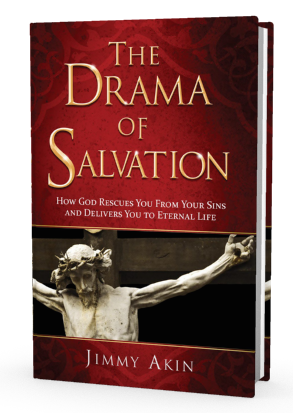 The drama of salvation involves every man, woman, and child on earth. In this life, all of us are suspended between heaven and hell.
The drama of salvation involves every man, woman, and child on earth. In this life, all of us are suspended between heaven and hell.
To rescue us, God sent his son—Jesus Christ—to give his life on the cross. This supreme act of sacrifice made salvation possible for all mankind.
Yet now, 2,000 years later, few people understand what Jesus did or how it affects us.
Worse yet, there are endless squabbles between Christians of different persuasions, leading to confusion on a massive scale.
In The Drama of Salvation, Jimmy Akin uses his expertise in Scripture and Church teaching to cut through the confusion and provide clear answers on important issues like:
What we need to do to be saved
Whether salvation is a one-time event or a process
Whether penance is part of God’s plan
What indulgences are
How faith and works relate
What the Church teaches about justification
How far apart Protestants and Catholics are on this question
Whether you have to be a Catholic (or a Christian) to be saved
No other book takes on these questions with the clarity and precision that Akin brings to them.
You owe it to yourself to find out the facts about the most important question in life, because the answer will affect you and those you love . . . forever.
I’m using Rafflecopter to help with the giveaway, which is cool because it allows you multiple entries for commenting, posting on Facebook, sharing on Twitter, etc. Click below to enter:
(If you’re reading this through email or RSS and don’t see the giveaway widget, click here.)
By entering this giveaway you agree to occasionally receive email updates from me—no spam, just updates about free books, cool links, and exciting news.
The winner(s) will be randomly selected next Friday and the books will be sent out, free of charge, shortly thereafter.
In the future I’ll be giving away more books and resources, sometimes multiple items per giveaway! So subscribe via feed reader or email to ensure you never miss your chance to win.
(Since I’m covering the shipping costs, only residents within the continental United States are eligible to win.)
The post “The Drama of Salvation” Book Giveaway! appeared first on Brandon Vogt.





April 9, 2015
10 Reasons You Need to Sign Up for the New Saint Thomas Institute TODAY!
I often hear Catholics say, “I really want to study my faith—take serious classes on the Bible, theology, and philosophy—but I can’t afford the high tuition of Catholic universities. Plus my schedule is full. PLUS most schools are too far away!”
Cost, time, distance—those are the three biggest hurdles that keep people from studying their faith more deeply.
But here’s some great news: my friend Dr. Taylor Marshall has knocked down all three barriers.
Taylor recently created the New Saint Thomas Institute, which gives you high-quality Catholic classes each month through the Internet, which you can absorb wherever you are and whatever time is best for you.
And they cost just 1-2% of the price you’d pay at a typical Catholic college!
Learn more about the New Saint Thomas Institute –> Click here
For less than $1 a day, you receive the benefits of higher level schools without having to spend thousands of dollars, commit several years of time, or move to a whole new location.
If you’re a Catholic who is serious about your faith the New Saint Thomas Institute is a total game-changer. I’ve been a student since Day 1 and I’ve been raving about it ever since.
The NSTI has over 1,500 students but enrollment is closed most of year. Taylor normally opens the window for new students just a couple times each year, for a short period—and right now is one of those times!
Here are 10 reasons why should join me and 1,500+ others and sign up NOW. When you enroll at NSTI, you’ll get:
Weekly HD video lessons on Catholic theology and apologetics – Expert video lessons from Dr. Taylor Marshall, a highly acclaimed teacher and scholar who has taught many courses at Catholic universities.
Answers to your specific questions – Taylor and thousands of others actively respond in the private discussion forums, so you can ask specific theological/philosophical questions and get fast responses.
Confidence as you grow in your Catholic faith – Imaging not getting flustered or tongue-tied next time you discuss your faith with family, friends, or co-workers—the NSTI will help prevent that.
Step-by-step guides on answering common objections to Catholicism - You”ll get several cheat sheets that will help immensely. They’re short, practical, and powerful.
The ability to earn your Certificate in Catholic Theology in 12 months – Taylor has a couple certificate programs, including one in Catholic Theology and another in Apologetics. Both are included FREE when you enroll in the Institute!
Full access to the MP3 audio library - Download all of the lessons and the New Saint Thomas Institute podcast so you can listen on the go, whether in the car, jogging, or at work. You’ll also get special bonus audio presentations like “How to Pray the Rosary Daily” and “Josephology: The Theology of St. Joseph.”
Catholic Theology Private Forum – Access to 1,500+ enthusiastic believers who have the same passion and interests as you. Learn about and discuss your favorite topics!
Access to the theological OxTalk Podcast – A special podcast just for New Saint Thomas students; you get all the past episodes and all future ones.
You’ll help feed over 2,000 hungry people every month – Taylor donates a portion of your tuition to feeding thousands of hungry people each month. Not only will you learn Catholic theology, you’ll carry out the works of mercy!
Support the Little Flower Orphanage in China for discarded children - Another part of your tuition will go toward helping orphaned and abandoned children in China.
For less than $1 a day, this is really a no-brainer. It’s the easiest, cheapest, most flexible way to deeply study your faith.
Click here to sign up –> Sign up for the New Saint Thomas Institute
Hope to see you on the inside!
PS. If you sign up today, you’ll also get copies of TWO of Taylor’s books: Thomas Aquinas in 50 Pages and The Crucified Rabbi: Judaism and the Origins of Catholic Christianity. Sign up now to get your FREE books!
PPS. Again, there is a very short enrollment window for the NSTI, and there are limited spots. Once the new spots are gone, registration closes. So if you want to join me and 1,500+ other students, and get in before it closes, NOW is definitely the time to sign up!
The post 10 Reasons You Need to Sign Up for the New Saint Thomas Institute TODAY! appeared first on Brandon Vogt.





April 6, 2015
Filling Our Father’s House: What Converts Can Teach Us About Evangelization [Book]




Filling Our Father’s House: What Converts Can Teach Us About Evangelization by Shaun McAfee (Sophia Institute Press, March 2015)


As Catholic converts know, the fullness of faith isn’t the same as the perfection of practice. We have much to learn from our Protestant brothers and sisters on living out the Gospel. Shaun McAfee, a convert himself, shows how we can turn to Protestants and “test everything and retain what is good” (1 Thess 5:21). From evangelization and personal testimonies, to hospitality and memorizing Scripture, his advice is clear and practical. Any Catholic who wants to live a more fruitful spiritual life will follow his direction.
The post Filling Our Father’s House: What Converts Can Teach Us About Evangelization [Book] appeared first on Brandon Vogt.





April 2, 2015
Learning from a Miracle-Working Evangelist of Thousands
Today we continue our regular series called “Learning from the Saints.” Our guide is expert Bert Ghezzi, a dear friend of mine and the author of numerous books including Voices of the Saints, Saints at Heart, and Discover Christ: Developing a Personal Relationship with Jesus.
His more recent books are The Power of Daily Mass and The Heart of Catholicism. You can learn more about Bert and his work at BertGhezzi.com.
Today, Bert profiles St. Vincent Ferrer, the patron of builders, construction workers, plumbers.
Vincent Ferrer was an activist. He was renowned as a preacher, miracle worker, adviser to popes and kings and champion of Christian unity. However, he founded his tireless work on a deeply personal spirituality:
“You must open the interior eyes of your soul on this light, on this heaven within you, a vast horizon stretching far beyond the realm of human activity, an unexplored country to the majority of men. The ordinary observer sees in the ocean only the realm of storms, and never guesses that a few feet below the surface its waters are always limpid, and in a scintillating clarity is found vegetation and living creatures of wondrous diversity, marvelous in beauty and structure, mysterious depths where the pearl is formed.
“Such is the depth of the soul where God dwells and shows himself to us. And when the soul has seen God, what more can it want? If it possesses him, why and for whom can it ever be moved to abandon him?
“So, at any price, preserve yourself in that calm through which the soul sees the eternal Sun. This vision of God will also show you yourself. The heights of greatness will show you the depths of misery. But fear nothing….When you have realized your true worth you will be able to judge your faults sanely, your own crimes will come home to you in full light, and the faults of your neighbor will remain in shadow.”
This sense of peace with God steadied Vincent for his service in the stormy fourteenth century, when plague, famine, and war devastated Europe. And heresy and division racked the Church. His life spanned the Great Western Schism, when there were rival popes at Rome and at Avignon, France. Vincent was loyal to the Avignon popes, but he pressured them to cooperate with efforts to restore unity.
 The schism reached its nadir after 1409 with three men claiming to be pope. At the Council of Constance in 1414, the bishops resolved to depose one claimant and ask the other two to resign, so that a new pope could be elected. The pope at Rome was willing to abdicate, but Benedict XIII, Vincent’s friend, adamantly refused. Vincent then declared publicly that because Benedict was blocking the unity vital to the Church, the faithful could justly withdraw their allegiance. Thus, the saint’s vast popularity significantly contributed to ending the schism. Benedict was ultimately deposed, the Roman pope stepped down and a new pope was chosen.
The schism reached its nadir after 1409 with three men claiming to be pope. At the Council of Constance in 1414, the bishops resolved to depose one claimant and ask the other two to resign, so that a new pope could be elected. The pope at Rome was willing to abdicate, but Benedict XIII, Vincent’s friend, adamantly refused. Vincent then declared publicly that because Benedict was blocking the unity vital to the Church, the faithful could justly withdraw their allegiance. Thus, the saint’s vast popularity significantly contributed to ending the schism. Benedict was ultimately deposed, the Roman pope stepped down and a new pope was chosen.
Vincent Ferrer’s main work, however, was revitalizing faith at the grass roots. In 1398, the saint was deathly ill and prayed for recovery so that he might continue preaching. Vincent said that Christ appeared and healed him. “You will preach repentance throughout the world,” Jesus had said, which the saint took as a commission.
For twenty years after 1399, Vincent crisscrossed Europe four times on foot. Everywhere, large crowds gathered to hear his message about the folly of sin, the need for repentance and the imminence of the end of the world. Like St. Paul and many other saints, Vincent expected Jesus to come soon to wrap up history. In response to his ministry thousands revolutionized their lives. Thousands also were miraculously healed during his missionary visits. Thus, St. Vincent Ferrer brought new life to people who had been battered by disease and war in the world and by confusion and division in the Church.
“You can only give what you yourself possess. In fact, you must have much more than you attempt to give, to enable you to give without despoiling yourself.”
— St. Vincent Ferrer
(Image Credit: Catholic.org)
Read more from Bert at his website www.BertGhezzi.com, or check out his many books on Amazon.
The post Learning from a Miracle-Working Evangelist of Thousands appeared first on Brandon Vogt.




March 30, 2015
What Apple’s CEO Gets Wrong About Discrimination and Religious Freedom
Last night, Apple CEO Tim Cook published an op-ed for The Washington Post, titled “Pro-discrimination ‘religious freedom’ laws are dangerous” (his scare quotes, not mine.) It’s already been shared tens of thousands of times and is a trending article on Facebook.
The article is undoubtedly rousing and emotional, but it’s sadly lacking in real substance.
Before responding to it, let me say that I’m a big fan of Apple, and that I’ve been generally impressed with Cook’s leadership, how he’s continued Apple’s success after Steve Jobs. Cook was placed in a difficult situation yet continues to flourish.
Having said that, Cook’s new article does not match his otherwise shrewd thinking. It’s confused and misguided, the regrettable result of a gifted tech executive trying to play political philosopher. Just as I would never presume to pontificate on nanotechnology or consumer electronic sales, it’s probably not a good idea for (most) tech CEOs to veer outside their expertise.
Cook begins his article by warning of a “dangerous” trend, washing over the country:
“A wave of legislation, introduced in more than two dozen states, would allow people to discriminate against their neighbors.”
Right off the bat, Cook misses a key distinction. Discrimination is not inherently bad. We may not realize it, but everyone in this country discriminates against our neighbors, and happily so. In fact, every law on the books is designed to discriminate.
The word “discriminate” simply means “to recognize or perceive differences,” which is what we do every day. For example, we discriminate against men when we prohibit them from women’s locker rooms (though that may be changing), against speeders when we say they have to drive under 20 m.p.h. in a neighborhood, and against young adults when we don’t give them a “senior’s discount” at restaurants. Discrimination simply means treating different things differently, and there’s nothing wrong with that.
What we don’t accept is unjust discrimination, which is discriminating (i.e., treating differently) two things that are, in the relevant sense, equal. Unjust discrimination, for instance, would involve allowing some women into the women’s locker room and not others, some ordinary drivers to speed but not others, or some senior citizens to get the “senior’s discount,” but not others, all else being equal.
(Or, to use a more relevant example, Apple discriminates by only offering their products to people who have money. But since rich people are different than poor people in the relevant sense, namely the financial one, the discrimination is not unjust.)
So from the beginning, Cook misses a basic and necessary distinction between discrimination in general (which we all accept and practice) and unjust discrimination.
He ironically fails to discriminate discrimination.
The question at hand is not whether religious liberty laws allow discrimination—all laws do—but whether they allow unjust discrimination.
(In fairness, Cook isn’t alone in missing this critical distinction. In his statement concerning the controversy at hand, Butler University president James Danko claimed to “reaffirm our longstanding commitment to reject discrimination and create an environment that is open to everyone.” If Butler truly rejected discrimination, there would be no application process.)
Cook continues:
“Some [legislation], such as the bill enacted in Indiana last week that drew a national outcry and one passed in Arkansas, say individuals can cite their personal religious beliefs to refuse service to a customer or resist a state nondiscrimination law.”
First, Cook seems unaware that state religious liberty laws, including the Indiana version, are not something new. The Indiana law is based on the Religious Freedom Restoration Act (RFRA), a 1993 federal law that has served Americans well for more than twenty years. The law passed with 97 votes in the Senate (out of 100) and was unanimously accepted by the House. It was then signed into law by then-President Bill Clinton.
(Also, in 1998 then state-Senator Barack Obama voted for a nearly-identical RFRA bill. It passed the Illinois Senate 56-0 and became law on July 1, 1998.)
Indiana governor Mike Pence, who signed the Indiana version of the RFRA, affirmed, “For more than twenty years, the federal Religious Freedom Restoration Act has never undermined our nation’s anti-discrimination laws, and it will not in Indiana.”
If Cook thinks it will, if he thinks RFRA-based laws are egregiously unjust, then he must equally condemn the beliefs of pretty much every Congress member of the mid-to-late ’90s (many still in office), the then-President, and more than a dozen other states, stretching back more than two decades. I doubt Cook is willing to go that far, but if he’s consistent, he would have to.
Second, Cook brings us a good question: is the purpose of religious liberty laws really to allow individuals to arbitrarily “refuse service to a customer”? If we allow religious liberty laws, such as the federal RFRA or Indiana’s version, won’t that allow people do whatever they want in the name of religion? Won’t that give people permission to unjustly discriminate against others simply because “my religion says so”?
The answer, thankfully, is no.
Religious liberty is not an absolute right, a key fact Cook ignores. As Ryan Anderson explains:
“There will be times when the government can show it has a compelling reason for burdening religious expression—to ensure public safety, for instance.
But Religious Freedom Restoration Acts set a high bar for the government to meet in order to restrict religious freedom. The way we’ve learned to live in a pluralistic society, with diverse religious and moral opinions, is to have a balancing test like the one the Religious Freedom Restoration Act provides.”
A robust conception of religious liberty provides every person the freedom to seek the truth, form beliefs, and live according to the dictates of his or her conscience—whether at home, in worship or at work. This includes Cook, Apple, other businesses, and every individual in this great country.
The purpose of the RFRA is not arbitrary discrimination but to protect the religious liberty rights enshrined in the Constitution. The RFRA, and laws based on it, provide a commonsense way to balance this liberty with compelling government interests, protecting citizens from violating their consciences unless those interests can’t be satisfied through any less-restrictive means than constraining religious liberty.
Cook continues:
“These bills rationalize injustice by pretending to defend something many of us hold dear. They go against the very principles our nation was founded on, and they have the potential to undo decades of progress toward greater equality.”
Notice in the first sentence how Cook just assumes that RFRA-based laws “rationalize injustice” without actually offering any support. Yet this is precisely what’s under debate: whether the RFRA laws are just or unjust forms of discrimination.
When someone assumes the conclusion of his argument as part of his argument, he falls into what philosophers call “begging the question.” It’s one of the most basic, elementary fallacies. Merely asserting or assuming something doesn’t make it true.
Cook also claims that RFRA-based laws “go against the very principles our nation was founded on.” This seems odd since the laws directly flow from the First Amendment—”Congress shall make no law respecting an establishment of religion, or prohibiting the free exercise thereof”—which, is, in fact, a principle that our nation was founded on.
This principle means we cannot enact laws that force a Native American to cut his hair short, or Christians to photograph “same-sex marriage” ceremonies, or Jewish deli owners to serve pork, or Muslim artists to paint pictures of Jesus, unless there are compelling government interests in any of those activities (and for these particular examples, there are not.)
Cook continues:
“America’s business community recognized a long time ago that discrimination, in all its forms, is bad for business….From North Carolina to Nevada, these bills under consideration truly will hurt jobs, growth and the economic vibrancy of parts of the country where a 21st-century economy was once welcomed with open arms.”
This isn’t true. Most of us praise discrimination in some businesses. For example, some companies only use organic products—discriminating between natural and unnatural ingredients—and the decision leads to more business. Other businesses offer discounts to veterans, firemen, or senior citizens—discriminating between those customers and everyone else—in order to honor those groups (and boost their own public image.) Some investment companies only welcome people who have a certain net worth, discriminating against poorer people but using exclusivity to increase comapny appeal. Some companies, like Chick-fil-a, discriminate against weekend shoppers by closing on Sundays, yet still show enormous profits. All these examples show that discriminating isn’t always bad for business, as Cook surmises.
A second point is that what’s under consideration is whether discrimination based on religious liberty is acceptable under civil law, not whether it makes good business sense. Something could be good for business but bad for liberty (and vice versa.) Arguing that America’s business community does not discriminate (whether true or not) is simply irrelevant to whether religious liberty rights should be upheld.
In fact, even if Cook is right, and businesses that choose to discriminate suffer, then that shouldn’t bother Cook or his fellow business leaders. It would only cause those companies to fail faster, opening up the market for Apple and other “non-discriminatory” businesses to generate more profits. To use an example, if Cook is right, then florists who are willing to provide flowers for any event should be happy when other florists refuse to serve “same-sex wedding” ceremonies. That only means more business for them.
Finally, in what is perhaps the most confused part of Cook’s article, he states:
“I have great reverence for religious freedom. As a child, I was baptized in a Baptist church, and faith has always been an important part of my life. I was never taught, nor do I believe, that religion should be used as an excuse to discriminate.”
Notice how Cook conflates “religious freedom” with religion in general. He claims to have great reverence for religious freedom but it’s not clear he even understands what religious freedom entails, a worrisome fact since his entire op-ed concerns the topic.
In defense of his “reverence” for religious freedom, Cook states that he was raised in a church and that faith has been important to him. While perhaps true, these claims are irrelevant to the question of religious freedom. Many people who safeguard religious liberty are atheist or non-religious, and, on the other hand, many people who oppose religious liberty laws are quite religious by practice.
To put it simply, going to church is not the same as promoting religious liberty.
As Cook nears the end of his article, he pivots into a dubious comparison:
“I remember what it was like to grow up in the South in the 1960s and 1970s. Discrimination isn’t something that’s easy to oppose. It doesn’t always stare you in the face. It moves in the shadows. And sometimes it shrouds itself within the very laws meant to protect us.”
Cook doesn’t highlight specific examples, but his insinuation is clear: people who support religious liberty are like racists who promoted Jim Crow laws. Again, if this were true, Cook would have to condemn all of Congress and then-president Bill Clinton as racists, since they signed into law essentially the same bill as that signed in Indiana. I doubt he would be comfortable doing this.
Notice also how throughout the op-ed, Cook provides no real reasons why religious liberty laws and Jim Crow laws are analogous. He simply tries to smear the former by associating it with the latter. This is a good rhetorical tactic, because it rouses our moral temper, but it’s an otherwise empty argument.
Cook concludes:
“Men and women have fought and died fighting to protect our country’s founding principles of freedom and equality. This isn’t a political issue. It isn’t a religious issue. This is about how we treat each other as human beings. Opposing discrimination takes courage. With the lives and dignity of so many people at stake, it’s time for all of us to be courageous.”
Indeed, men and women have died to protect our founding principles, and those principles include the First Amendment, which protects religious freedom.
And indeed, since this controversy is about religious liberty, it is, by definition, a political and religious issue.
Cook is right that we must all be courageous. But courage without reason is recklessness. The lives and dignity of so many people are on the line, which is why it’s time for all of us not just to be courageous, but to think clearly and reasonably.
Cook’s op-ed is, at its core, unreasonable. I don’t mean that pejoratively; I mean it literally. Cook provides no good reasons to reject religious liberty laws, and little evidence that he even understands the issue.
Americans (and Apple supporters) deserve better.
(For another take, read Ryan Anderson’s excellent article, “Apple CEO Tim Cook Is Wrong About Indiana Religious Freedom Law”.)
The post What Apple’s CEO Gets Wrong About Discrimination and Religious Freedom appeared first on Brandon Vogt.




Brandon Vogt's Blog
- Brandon Vogt's profile
- 75 followers




